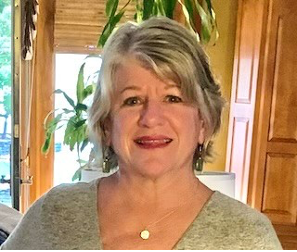Dr. Annie Lewis-O’Connor is a -certified nurse practitioner. Her clinical and research efforts focus on the development and implementation of trauma-informed care (TIC), an organizational approach to mitigating the health consequences of violence. Dr. Lewis-O’Connor received her MSN from Simmons College and her MPH from Boston University School of Public Health, as well as her PhD from Boston College. Prior to joining BWH, Dr. Lewis-O’Connor was a member of the faculty Boston University School of Public Health and as well as Boston University School of Medicine.
At BWH, Dr. Lewis-O’Connor founded and serves as the director of the C.A.R.E. Clinic (Coordinated Approach to Resilience and Empowerment), providing patient-centered, trauma-informed specialized care to patients who have experienced violence and/or trauma. She is the Director of Research & Innovation for the Center of Nursing Excellence. Dr. Lewis-O’Connor is the co-chair of the BWH Trauma-Informed Care Learning Collaborative and is involved in several TIC initiatives nationally. She is founding member and sits on the board of directors for the Academy of Forensic Nursing, and is Section Editor, Research for the Journal Academy of Forensic Nursing. Annie is a Robert Wood Johnson Clinical Scholar Alumnae.
Over the years, Dr. Lewis-O’Connor’s research has explored a variety of topics related to trauma and interpersonal violence. In addition to looking at best practice methods of care for patients with recent or past trauma, her research has analyzed screening methods and the most effective ways to train providers and staff.

Brigham & Women’s Hospital
Associate Scientist, Division of Women’s Health, Department of Medicine; Director of Research & Innovation, Senior Nursing Scientist, Center for Nursing Excellence; Founder & Director, C.A.R.E. Clinic
Harvard Medical School
Instructor in Medicine
Dr. Lewis-O’Connor’s current research is focused the development, evaluation and dissemination of trauma-informed tools Additional research includes efforts to improve coordination, service delivery and continuum of care for patients impacted by violence, trauma and abuse throughout BWH/MGB facilities. The goal is not only to improve outcomes for victims of violence within the BWH/MGB system and community, but also to improve community relationships and build sustainable partnerships.
Dr. Lewis-O’Connor is also looking more specifically at patients served by community health centers to better understand the needs of, and how to improve delivery of care for patients. Based on the findings of the 2016 BWH Community Health Needs Assessment, she is focusing her efforts on select priority neighborhoods. Her team will use a trauma-informed care approach to identify points of patient care and ultimately measure impact stratified by zip code.
Using evidence and experience collected over years of research and patient care, Dr. Lewis-O’Connor and her team are in the process of designing and building an interactive web-based location that houses TIC educational materials, pod casts, webinars, videos, reference tools, and skills.
Funding
Lewis-O’Connor A, Warren A, Lee JV, Levy-Carrick N, Grossman S, Chadwick M, Stoklosa H, Rittenberg E. The state of the science on trauma inquiry. Womens Health (Lond). 2019 Jan-Dec;15:1745506519861234. PMID:31456510
Lewis-O’Connor A, Alpert E. Caring for Survivors Using a Trauma-Informed Care Framework In: Chisolm-Straker M, Stoklosa H, editors. Human Trafficking Is a Public Health Issue: A Paradigm Expansion in the United States. Cham, Switzerland: Springer International Publishing; 2017. p 309-323.
Levy-Carrick NC, Lewis-O’Connor A, Rittenberg E, Manosalvas K, Stoklosa HM, Silbersweig DA. Promoting Health Equity Through Trauma-Informed Care: Critical Role for Physicians in Policy and Program Development. Fam Community Health. 2019 Apr/Jun;42(2):104-108. PMID: 30768474
Machtinger EL, Davis KB, Kimberg LS, Khanna N, Cuca YP, Dawson-Rose C, Shumway M, Campbell J, Lewis-O’Connor A, Blake M, Blanch A, McCaw B. From Treatment to Healing: Inquiry and Response to Recent and Past Trauma in Adult Health Care. Womens Health Issues. 2019 Mar – Apr;29(2):97-102. PMID:30606467
Sloand E, Killion C, Yarandi H, Sharps P, Lewis-O’Connor A, Hassan M, Gary F, Cesar NM, Campbell D. Experiences of violence and abuse among internally displaced adolescent girls following a natural disaster. J Adv Nurs. 2017 Dec;73(12):3200-3208. PMID:28398661
Campbell DW, Campbell JC, Yarandi HN, O’Connor AL, Dollar E, Killion C, Sloand E, Callwood GB, Cesar NM, Hassan M, Gary F. Violence and abuse of internally displaced women survivors of the 2010 Haiti earthquake. Int J Public Health. 2016 Nov;61(8):981-992. PMID:27624625
Scannell M, Lewis-O’Connor A, Barash A. Sexual Assault Simulation Course for Healthcare Providers: Enhancing Sexual Assault Education Using Simulation. J Forensic Nurs. 2015 Oct-Dec;11(4):188-97. PMID:26457900
Lewis-O’Connor A, Chadwick M. Engaging the Voice of Patients Affected by Gender-Based Violence: Informing Practice and Policy. J Forensic Nurs. 2015 Oct-Dec;11(4):240-9. PMID:26588223
Bair-Merritt MH, Lewis-O’Connor A, Goel S, Amato P, Ismailji T, Jelley M, Lenahan P, Cronholm P. Primary care-based interventions for intimate partner violence: a systematic review. Am J Prev Med. 2014 Feb;46(2):188-94. Review. PMID:24439354
Deshpande NA, Lewis-O’Connor A. Screening for intimate partner violence during pregnancy. Rev Obstet Gynecol. 2013;6(3-4):141-8. Review. PMID:24920977

Research Program of the Division of Women’s Health
Department of Medicine, Brigham and Women’s Hospital
75 Francis Street, Boston MA 02115